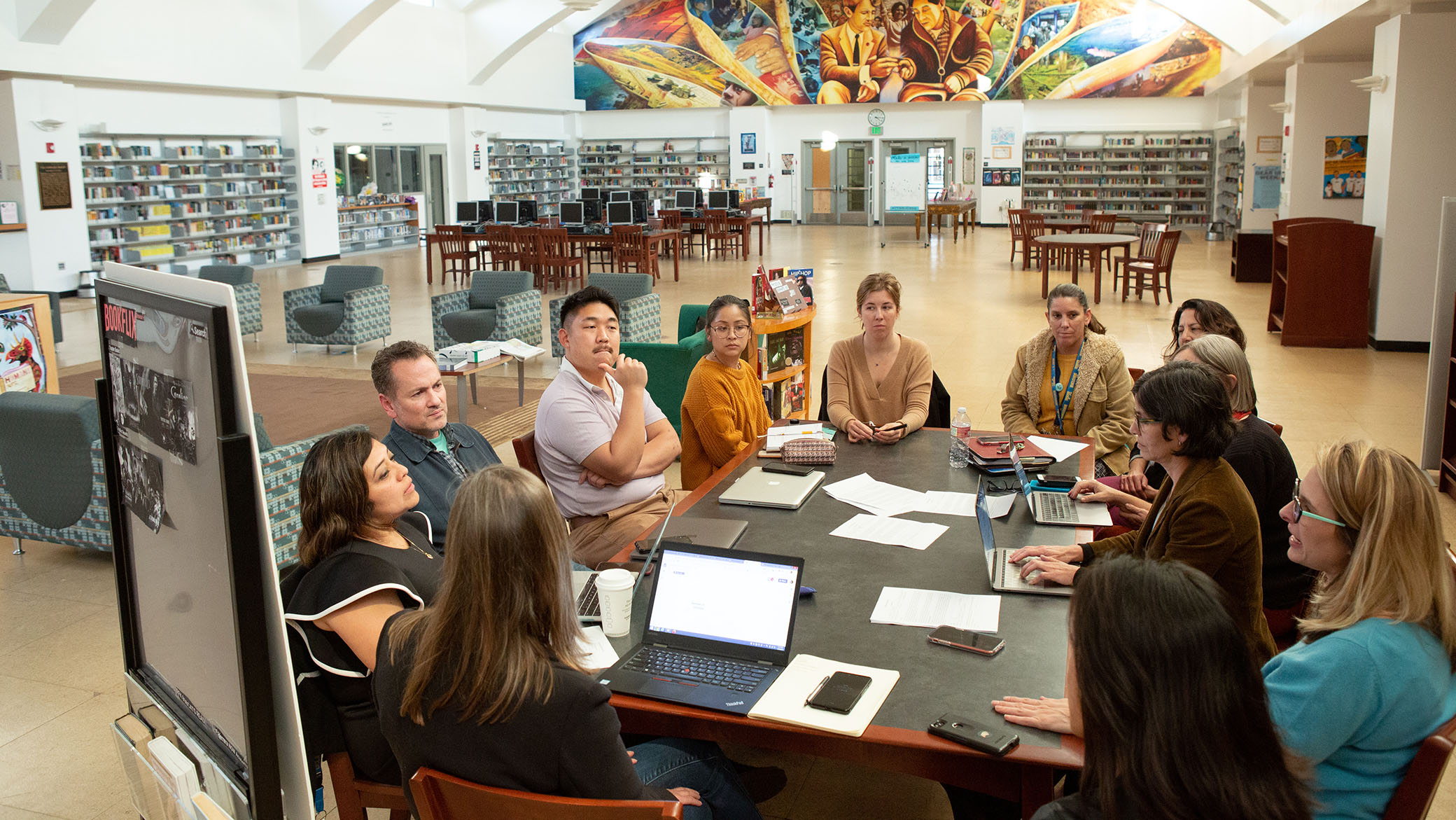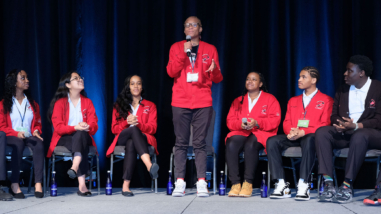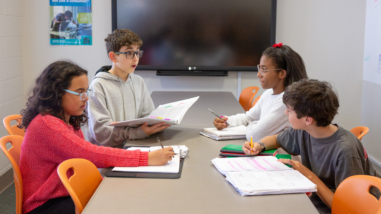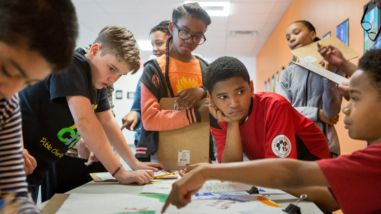Collaborating for a better future: Strategies for successful education research partnerships

Learning is a shared experience, and everyone — students, educators, families, and communities — has a part to play and something to gain. To create lasting impact for students, it is important for everyone involved to have a voice in shaping teaching and learning experiences. This requires opportunities for questions and approaches to be co-constructed by students, practitioners, researchers, and community members. Collaboration is necessary for building schools and communities we want to be part of.
To this end, the Education Program has been funding an effort aimed at increasing the number of individuals and organizations working to advance collaborative education research. This work is led by a design team from California Education Partners, Rice University, Stanford University, and University of Colorado Boulder. The design team’s approach built off some initial conversations led by the National Center on Research in Policy and Practice and funded by IES, which brought together teams of administrators, faculty, and graduate students from university schools of education to design learning opportunities in collaborative education research for doctoral students.
Starting with an analysis of existing literature and resources related to research-practice partnerships in education, the design team then organized a series of open conversations about what learning experiences will support researchers’, practitioners’, and community members’ work in collaborative education research. Across three online events held in 2022, 339 individuals representing 185 institutions registered. About half of those who registered (45%; 154 of 339) engaged in at least one online event via discussion, note taking, and survey input, and a smaller subset of individuals attended parallel in-person and online sessions to refine an articulation of the essential learning experiences for collaborative education research.
The result of this first phase of work is a framework outlining five core ideas to be used both in learning experiences and to guide the design of learning programs in collaborative education research.
- Systems Landscape: Educational research is embedded in social, cultural, historical, and political contexts.
- Interpersonal Relationships: All collaborators can and should be positioned positively and powerfully through attention to roles and relationships.
- Intrapersonal Relationships: Individuals can and should reflect on how they perpetuate power differences as they “show up” for the work.
- Resource Mobilization: Human, financial, and material assets can and should be leveraged to create more equitable education systems.
- Educational Research: Research evidence can and should be adaptive and responsive to local needs.
For each core idea, the framework includes questions to encourage critical reflection on past practices and equitable development of future processes.
We encourage you to read more about this process and the resulting framework in this paper, Towards a Field For Collaborative Education Research: Developing a Framework for the Complexity of Necessary Learning. In the spirit of collaboration and toward a more just and equitable future, the authorship of this paper is cited as the “Collaborative Education Research Collective” and lists the many contributors involved in this endeavor. Our hope is that individuals who desire to learn and organizations that want to offer learning opportunities in collaborative education research will use these questions to guide their learning and development efforts.
Collaborative Education Research encourages consideration of the multiple forms of collaborative partnerships involving inquiry in education as legitimate and worthy of pursuing. This is meant to capture a broad family of approaches and traditions that may include but are not limited to research-practice partnerships, participatory action research, youth participatory action research, community-based partnerships, community-engaged scholarship, social design experiments, school-university partnerships, networked improvement communities, and design-based implementation research partnerships.



